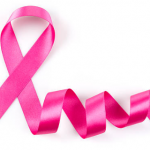
Studies have shown that cancer is among the leading causes of death around the world, and will result in approximately 84 million dying of this ailment between 2005 and 2015 if interventions are not put in place to fight this deadly disease.
Guyana has joined with the rest of the world to observe World Cancer Day on January 4, under the theme “debunk the myth”.
Each year, World Cancer Day focuses on different issues surrounding the fatal disease, and this year, the focus will be on trying to dismiss the misconceptions about cancer; in particular the myth that cancer is a disease that only affects rich countries.
A report from the Ministry of Health shows that cancer has been the third leading cause of mortality in Guyana with Ischemic Heart Diseases coming at second and Cerebrovascular Diseases at number one. Prostate, breast, lung and cervical cancers are the main categories affecting the Guyanese population.
The report shows that during the period of 2004-2011 over 3400 persons died from various forms of cancer, with the largest number of deaths being 621 in 2011.
Guyana has the third highest rate of cervical cancer in the Western hemisphere. Afro-Guyanese account for over 65% of prostate cancer, whereas Indo-Guyanese women had the highest cases of breast cancer-45.
Although genetic influences increase the risk for developing certain cancers, lifestyles, diets and socio-economic status also play a significant role in the determination of who will be afflicted.
The Minister of Health Dr Bheri Ramsaran, at a press conference today, spoke of the disease and what the ministry has been doing to raise awareness.
The Ministry has been implementing programmes and strategies to aggressively tackle this issue.
It continues its national response to ensure preventative methods such as immunisation against cervical cancer and screening are made available to the population, and has also put in place a programme for young women to undertake the Visual Inspection using Acetic Acid (VIA) or a Pap screening for cervical cancer. Thus far, over 15,000 people have been tested for cervical cancer.
Screening should be done every two years for women who either are or were sexually active, as they stand a higher risk.
The Ministry, also late last year launched its Health Vision 2020 Strategy for which emphasis was placed on Non Communicable Diseases (NCDs), especially cervical cancer, its causes and possible prevention.
The Ministry has since 2007 been focusing on cervical cancer, trying to reduce its incidence through several programmes across the country to educate women.
Cervical cancer is caused by the HPV virus which is sexually transmitted especially amongst young people. The Ministry has made available HPV vaccinations to females starting from age nine because studies have shown that the vaccination works better in females who take the shots before become sexually active.
The Periwinkle Club has also been playing a major part in the fight against cancer. The club been in existence for the past seven years, and is involved in educating the public on the ailment. They visit different venues and conduct outreaches, sensitisation and screening for the cancer. The group comprises cancer survivors and supporters of the fight against cancer.
The group also raises awareness of cancer in men, as most men are shy to get screened or even learn about the ailment. One of the group’s main focuses is breast cancer, particularly in men.
The Ministry will be intensifying its awareness programme in 2014 across the country as to ensure that persons are aware of this disease. Access to care will also be heightened.
Cancer control requires much targeted efforts commencing from creating public awareness, national concern control strategy, improving screening and diagnostic and developing and sustaining a much more positive environment for persons who are affected by cancer. (GINA)











You must be logged in to post a comment Login